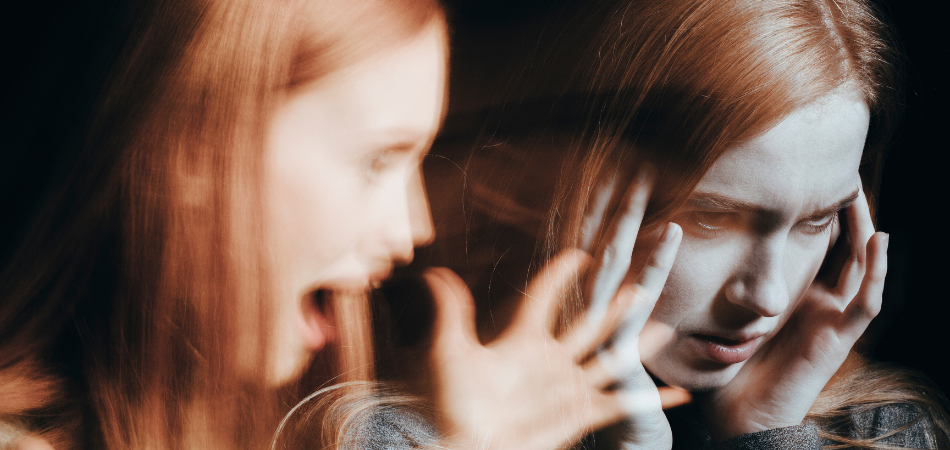PCP is a classic example of a drug initially developed for medical purposes but which has become synonymous with recreational abuse. Although hallucinogens like PCP are not typically linked with addiction, the risk of developing a PCP addiction is real and carries potentially severe consequences. PCP addiction can be an incredibly difficult condition to manage, so anyone who is using the drug must understand the risks and how to seek help if necessary.

What is PCP?
Phencyclidine, more widely known by its acronym PCP, was first synthesised in the 1950s as an intravenous anaesthetic. However, due to its severe side effects, such as hallucinations and delirium, its medical use was discontinued in the 1960s.
Since then, however, PCP has found a new life as a recreational drug, notorious for its powerful psychological effects. PCP is primarily a dissociative drug, meaning it distorts perceptions of sight and sound and produces a feeling of detachment from the environment and yourself.
PCP can be consumed in various forms and methods, each affecting the intensity and duration of its effects. It is most commonly smoked, having first been sprayed onto leafy materials such as mint, parsley, oregano or cannabis, producing effects within minutes. However, it can also be swallowed in tablet or capsule form, mixed into foods or drinks, snorted as a powder or, in rare cases, injected. This method is particularly dangerous because it can lead to immediate and intense effects and even the risk of overdose.
What is PCP addiction?
PCP addiction is essentially a compulsive need to use PCP despite the harmful consequences it is having on your life. Unlike many other substance addictions, which can involve a strong physical dependence, most forms of hallucinogen addiction are primarily psychological. This means that the drive to use PCP is often more about chasing the mental effects and becoming psychologically reliant on it for stress, to escape reality, or to recapture the intense experiences.
The development of PCP addiction can be subtle and insidious. It often begins with experimental or recreational use but can quickly evolve into a situation where you feel unable to function normally without PCP. Over time, this can lead to a range of negative outcomes, including social isolation, financial problems and severe mental health issues.
How to spot PCP addiction
Recognising the signs of PCP addiction is critical for effective and timely intervention. Some of the most common signs which may differ from the symptoms of other forms of addiction include:
- Frequent episodes where the person seems detached from their surroundings or themselves.
- Sudden, unexplained shifts in mood or personality are often seen with PCP intoxication.
- Engaging in risky behaviours without considering the consequences due to PCP’s effects on decision-making and awareness.
- Exhibiting signs of forgetfulness or gaps in memory, particularly following PCP use.
- Difficulty with motor skills as a result of PCP’s effects on the nervous system.
- Slurred or garbled speech can occur during PCP intoxication.
- The hallucinogenic properties of PCP can cause chronic users to see or hear things that are not there even when they are not under the influence.
- Unusual irritability or hostility towards others, heightened by PCP’s influence on mood and perception.
PCP in the UK
PCP is not as widely used in the UK, and there is little concrete data about rates of PCP abuse or addiction. Its rarity is partly due to timely intervention by the UK authorities, who recognised the dangers of PCP early and made it a Class A drug in 1979 under the Misuse of Drugs Act. This placed PCP in the most serious category, alongside drugs like heroin and cocaine, with possession, supply and production all carrying severe legal penalties, including lengthy prison sentences.
Despite this, PCP is still present in the UK, particularly in the club and party scenes. It is often known for its various street names, including Angel Dust, Rocket Fuel, and Supergrass.
Why is PCP addictive?
Understanding why PCP is addictive involves examining both its chemical effects on the brain and the psychological impact it has on users. Here is what makes PCP particularly prone to misuse and addiction:
Dopamine release
PCP increases the amount of dopamine, a neurotransmitter that produces pleasure and reward in the brain. This release can create a euphoric effect that users seek to replicate, driving repeated use.
Dissociative properties
The dissociative effects of PCP can be psychologically addictive for individuals seeking escape from personal problems or reality.
Social and environmental factors
PCP addiction can also be influenced by factors such as peer pressure, emotional distress and social issues, which can drive individuals toward PCP use as a form of relief.
Withdrawal and cravings
While physical withdrawal symptoms from PCP are not as severe as those from substances like opioids or alcohol, users may still experience cravings and psychological withdrawal, which can perpetuate the cycle of PCP abuse addiction.
It is important to understand that many people who become addicted to PCP often have a unique combination of these factors. Effective treatment requires each of the factors to be addressed systematically to break the momentum of addictive behaviours.
The potential dangers of PCP addiction
PCP addiction can have severe and wide-ranging consequences on both physical and mental health. Understanding these risks is crucial for anyone involved with or exposed to PCP use:
Physical health risks
- Respiratory distress: Difficulty breathing, which can be acute in cases of high dosage, is a major risk of PCP and is one of the most common causes of PCP overdose.
- Increased blood pressure and heart rate: These can lead to more serious cardiovascular problems, including heart attacks in the most serious cases.
- Loss of coordination and physical control: High doses of PCP can cause users to become extremely uncoordinated, which may result in accidents or injuries.
- Seizures: In some cases, the neurological impact of PCP can trigger seizures, which can be life-threatening.
Mental health risks
- Psychotic episodes: Users may experience episodes that include delusions, hallucinations and extreme paranoia, which can mimic symptoms of schizophrenia. In serious cases, PCP can trigger new mental health disorders or worsen pre-existing ones.
- Mood disturbances: PCP can cause severe swings in mood, from extreme euphoria to deep depression, which can make every part of your life incredibly difficult.
- Cognitive impairments: Long-term PCP use can lead to difficulties with concentration, memory and logical thinking, impacting your ability just to function.
- Social withdrawal and isolation: The damaging effects of PCP and the shame of addiction can make people distance themselves from their friends and family, leading to isolation and a worsening of their mental health.
How is PCP addiction treated?
Treating PCP addiction involves a comprehensive approach that addresses all of the different facets of the condition. This usually begins with drug detox, where the body is allowed to rid itself of PCP’s toxins under careful medical guidance and observation. Detox is designed to manage any withdrawal symptoms that arise, which, in the case of PCP, are usually psychological.
Following detox, hallucinogen rehab helps you to understand why exactly you have come to rely on PCP. This stage dives into all of the factors that make PCP addictive that were discussed above so that these underlying causes can be addressed systematically.
Once rehab is complete, there will usually be a period of aftercare and relapse prevention support to help the person stay sober long-term.
How to get help for PCP addiction
If you or someone you know is struggling with PCP addiction, it is crucial to seek help immediately. Contact our specialist admissions team today.
Call our admissions line 24 hours a day to get help.
FAQ’s
(Click here to see works cited)
- FRANK. “PCP | Effects of PCP.” FRANK, https://www.talktofrank.com/drug/pcp. Accessed 12 May 2024.
- Sreenivas, Shishira. “PCP: What to Know.” WebMD, 6 May 2023, https://www.webmd.com/mental-health/addiction/what-is-pcp. Accessed 12 May 2024.
- UK Addiction Treatment Centres. “Hallucinogen Addiction Treatment | Hallucinogen Rehab and Detox | UKAT.” UK Addiction Treatment Centres, 8 January 2024, https://www.ukat.co.uk/rehab-treatment/drug/hallucinogens/. Accessed 12 May 2024.








